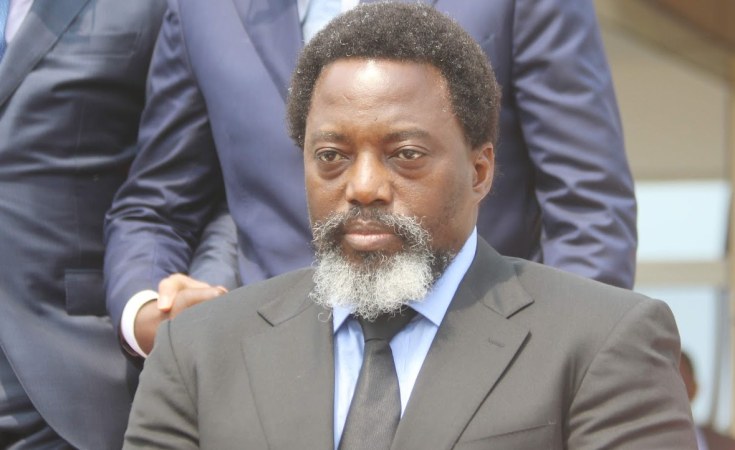Democratic Republic of Congo's Senate has overwhelmingly voted to strip former president Joseph Kabila of his honorific immunity. It follows accusations he backed the M23 rebel group which has seized land in the mineral-rich east of the country with Rwandan support.
On Thursday, 88 senators voted in favour of lifting Kabila's immunity; five opposed and three abstained.
Congolese President Felix Tshisekedi alleges Kabila conspired with the Rwanda-backed M23, whose recent offensive has intensified the more than three-decade-long conflict in the east of the country.
Kabila, who has been outside the country since 2023, was not present in the chamber at the time of the vote.
By the vote, "the Senate authorises the prosecution and lifting of Joseph Kabila's immunity," declared the upper house's speaker Jean-Michel Sama Lukonde.
Kabila now faces the prospect of being tried in military courts for "treason, war crimes, crimes against humanity and participation in an insurrectionary movement".
DRC seeks to remove ex-president Kabila's immunity from prosecution
On leaving power, Kabila became the first former DRC leader to obtain the honorific title of senator for life and with it, parliamentary immunity.
To allow legal proceedings to move forward, the Congolese army's public prosecutor lodged a request for the Senate to lift that privilege.
The accusations against Kabila were based partly on testimony from opposition figure Eric Nkuba, who claimed to have overheard the former president urging M23 leaders to remove Tshisekedi via a coup.
Senior political researcher Ithiel Batumike of the Ebuteli research institute told AFP that confession was extracted under duress.
However, the army prosecutor told the Senate commission that the claims were "credible and constant".
From 1960 to present day, 11 dates that explain the conflict in the DRC
'No Congolese above the law'
Kabila has been out of the country since 2023. Recent reports claim he has returned to the town of Goma, which was seized by M23 in January. However, no evidence of his return has emerged.
The government has suspended his People's Party for Reconstruction and Democracy (PPRD), while security forces have raided several of his properties.
In a social media post on Thursday Kabila called the Senate's move "a desperate political manoeuvre in a climate of panic at the top of the state," adding that it was made "without respect for institutional balance".
The PPRD rejected the Senate's authority to act alone.
"Joseph Kabila is not a senator like the others. As a former head of state, he falls under a special legal regime," said PPRD spokesperson Ferdinand Kambere, describing the decision as a "witch hunt".
Senator Jules Lodi of president Tshisekedi's UDPS party underlined that the Senate's vote did not constitute a conviction and that Kabila was presumed innocent, but that "No Congolese is above the law".
Fellow senator Jean Tshisekedi hailed the decision as "historic," adding that the accusations against Kabila were "dangerous for the nation".
"They touch the heart of every Congolese. We are here to set an example," he said.


